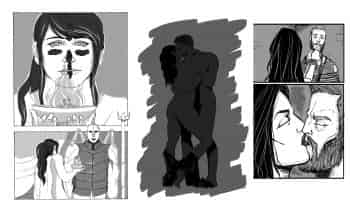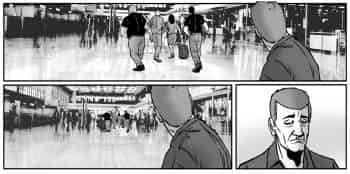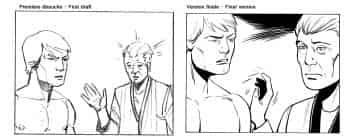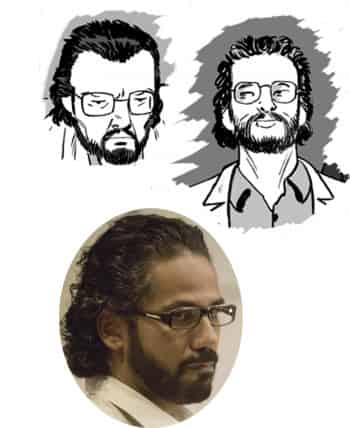Bonus
-
Have a plan, but leave room to manoeuvre
In a long essay, Javier Grill–Marxauch looks back at his experience as a writer for the TV series Lost (“The Lost Will and Testament of Javier Grill–Marxauch,” http://okbjgm.weebly.com/lost, 24 March, 2015). The essay contains so many interesting blurbs about ups and downs of the creative process that we wanted to share a few:
“[…] we were paving the way for the good ideas by coming up with a lot of bad ones. Very bad ones.”
“[…] inspiration is always augmented through improvisation, collaboration, serendipity, and plain, old, unglamorous Hard Work.”
“[…] in television there is only one way of doing that: have great characters who are interesting to watch as they solve problems onscreen.”
“What I just described was only one of a continuum of very interesting, ongoing, moments in which improvisation—coupled with a strong conceptual foundation of previously generated ideas—provided crucial watershed events for the series.”
This long piece is packed with insights that can’t all be applied to our experiences on this comic, if only because the collaborative aspect is much more restricted here. So there is something for everyone to pick and choose from among his ideas.
But the idea of having a long-term plan and, at the same time, leaving room for short-term improvisation is something we apply in all our story lines. Here are a few examples:
Blascovitch was supposed to die much later on in the series, but we found this new timing quite appropriate. He’d made his major contributions, and his death opened the door for changes in the dynamics between Valasquez, Markham and Wood.
In the story “Going All Out—Part II,” Valasquez was supposed to let Gypsie go after torturing her. We decided to have her escape instead, as it was a good demonstration of her strength of character.
Votan—or at least Travis—was also supposed to die much later on in the story arc, but here again, the details were fuzzy. By getting rid of him earlier—and mainly via Cesar, who was egged on by his wife—we opened the story up to new interrelationships, whose potential we can sense even if we don’t yet have a clear picture of all the coming ramifications.
-
Women in control—Part IV
We like Gypsie because this character is not a prude and she uses her sexuality to get what she wants. She is talented at mental manipulation, but is more likely to use her body than her psychic abilities to achieve her goals. In that sense, her relationship with Travis was much more ambiguous than the one with Blascovitch. With the latter, sex was only a way for Gypsie to get favours. It was different with Travis. And while his death was predictable, it was still a shock for her.
Their ambiguous relationship may seem confusing. It’s Gypsie who dominates the couple, even though Travis (via Votan) is clearly more powerful. She gives Travis the ambition he seems to lack. There is of course an element of Lady Macbeth dormant in her. And Travis is simply stupid with love for her. He would do anything for her. Gypsie knows this and uses it to her advantage. But beyond the power that Votan confers onto Travis, and thus onto Gypsie herself, she is genuinely attached to Travis.
-
Death isn’t the only way for characters to leave the story
Death is inevitable in a story world like the one inhabited by the Apatrides. It would be unnatural if it weren’t. However, deaths shouldn’t become commonplace. In our opinion, Eva’s departure from the story is an elegant exit, one that opens up a new chapter of her life. Her departure does not mean she ceases to exist.
-
Touch-ups (“Psychological Warfare”—Part IV)
-
Where does that character come from? The example of Cesar








